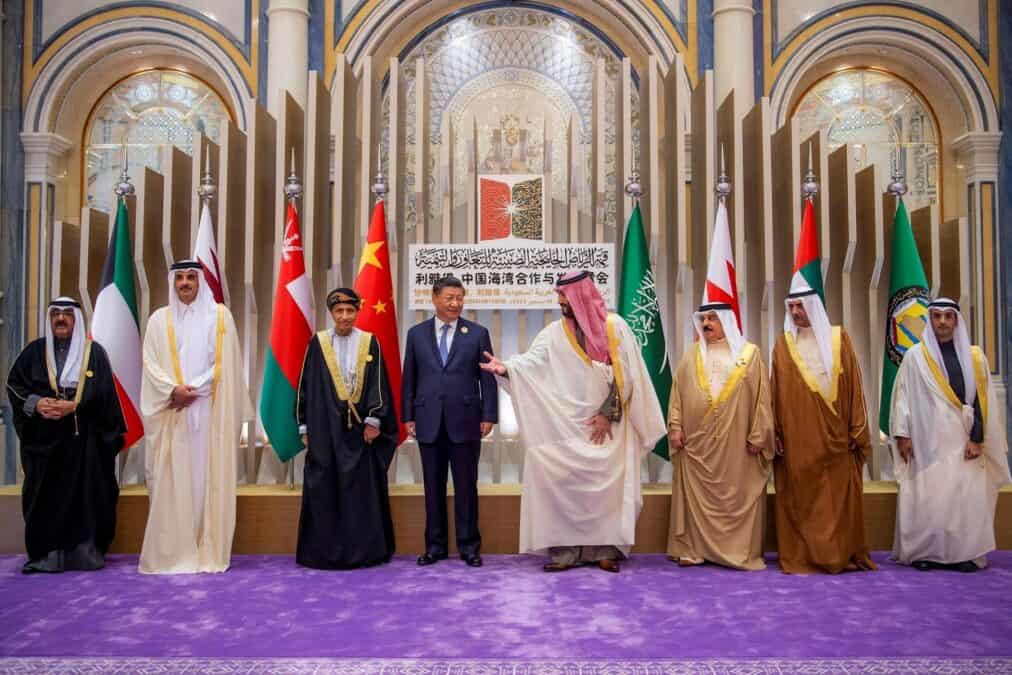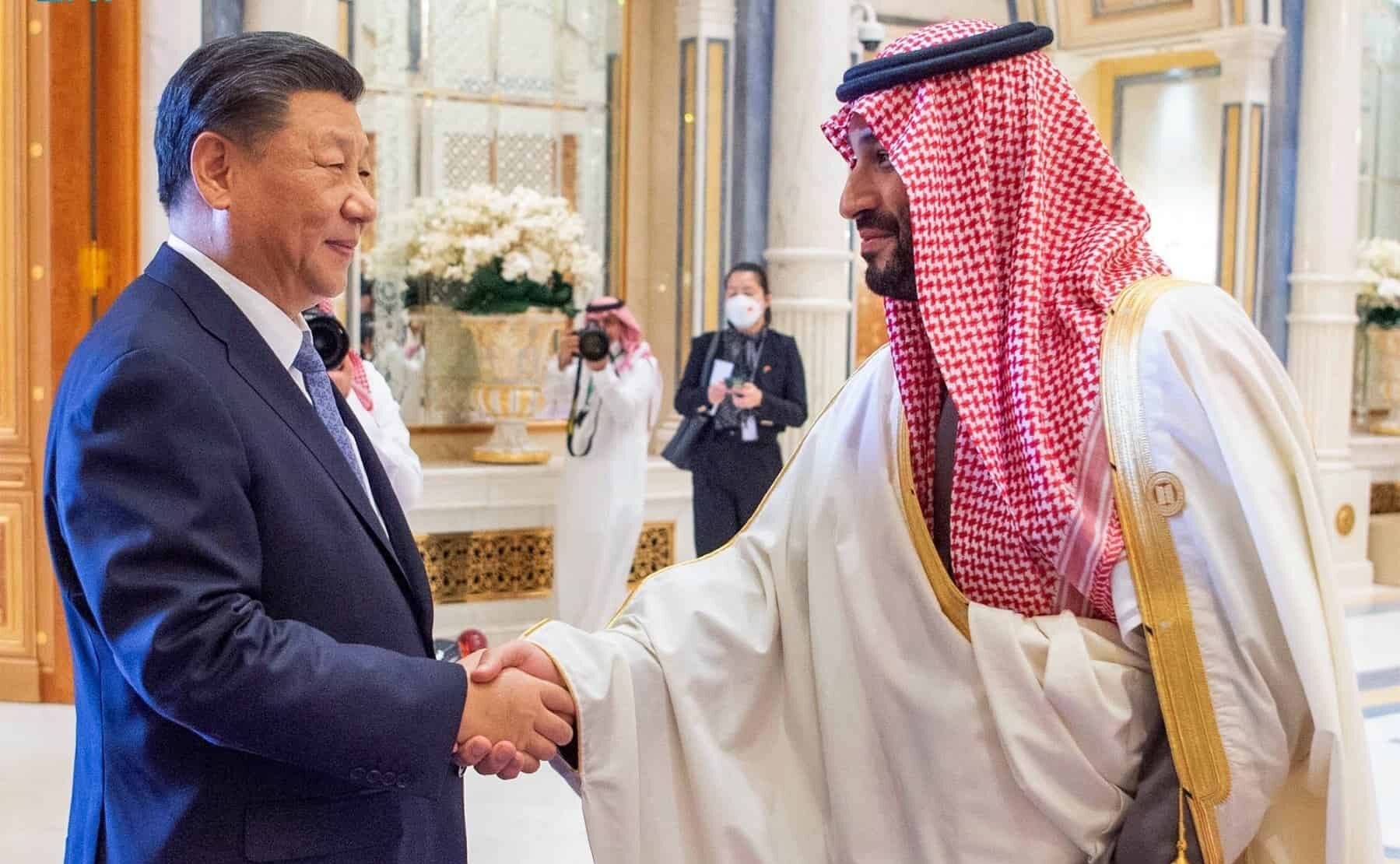DUBAI, UAE — The GCC region has been developing increasingly closer relations with China in recent years. In fact, Beijing has taken a more active political role in the GCC due to its growing economic footprint and energy dependence. Its regional goal is to maintain energy supplies and reduce Western, especially US, influence wherever possible. Thus, it prefers diplomacy and economic tools to achieve its regional goals.
China’s economy expanded by more than 550 percent from 2006 to 2022. During the same period, its crude oil imports increased from 145 million tons in 2006 to more than 508 million tons in 2022.
Unsurprisingly, China’s rapid economic growth and increased energy demand have led to increased imports of GCC crude oil. As US crude oil import demand has declined due to increased domestic production, Gulf countries have redirected exports to the Indo-Pacific, including China. In 2022, the GCC exported just over 210 million tons to China, more than doubling its 2014 shipments.
Saudi Arabia is the region’s largest exporter to China, with nearly 88 million tons shipped to the PRC in 2022. However, Oman’s exports to China are also notable. Despite Muscat’s minor role in global energy markets, Oman has historically been the GCC’s second-largest crude oil exporter to China until it was surpassed by the UAE in 2022, possibly due to Abu Dhabi’s re-export of Russian crudes.
According to Farah Mourad, Senior Market Analyst of XTB MENA, China is trying to play a more central role in the region. It is the world’s second-largest economy, with a massive energy demand that the GCC countries can satisfy.

Furthermore, the Chinese-GCC relationship is shifting away from the oil-energy relationship only because there are investment opportunities, particularly in finance, infrastructure, and technology, which are critical, she said.
“As we all know, China and the US are engaged in a “Cold War” in terms of technology. So, as a result, the region will be able to benefit from technology. I believe this is from the GCC, but if we want to see what China has to do with it, we can see that they are dealing with energy and their currency,” she added.
Can China erode the dollar’s power in the region?
China’s brokering of talks between Saudi Arabia and Iran in March was a further step in the seismic realignment of the world’s power balance. Beyond this diplomatic victory, while making vast economic inroads worldwide, Beijing seeks to uproot the US dollar’s hegemony.
According to recent reports, Riyadh is considering accepting the yuan as a currency to price some oil sales to China.
In February, Iraq’s central bank announced plans to allow Chinese trade to be settled directly in the yuan for the first time in an attempt to improve access to foreign currency.
The six-member economic bloc of the GCC is also looking to deepen its trade and investment relations with China, and the two sides are edging closer to signing a free trade agreement.
However, despite these expectations, the Chinese yuan/renminbi remains a minor global currency player. Furthermore, the US dollar remains the dominant currency for international trade and is widely used in the Middle East and GCC countries. Adopting non-dollar trade would require significant changes to the global economic system, and it’s unclear whether the region is fully prepared for such a shift.
“If you want to compare what’s going on in Iraq to what’s happening in the GCC, I believe it’s slightly different. If you look at the Iraqi situation, there is a lack of dollars and a few potential sanctions. So, opening to a new strong economic ally is very important to them. We also see a plan to strengthen the regional bank and their accounts in Chinese banks. So, they’re attempting to diversify their exposure to foreign currencies,” Mourad mentioned.
On the other hand, she does not believe we will see a significant shift away from the dollar because, at the end of the day, the GCC currencies are backed by the dollar. Meanwhile, given that Saudi Arabia is the primary source of oil imports, we’re witnessing this long history between Saudi Arabia and China.
Modern Chinese-GCC relations are increasingly political. China’s “non-interference principle” aligns with the GCC’s preference for non-interference. As seen in the Iran-Saudi deal, Beijing’s increasingly assertive political role in the region seeks to reduce energy supply disruption.
Despite these steps to strengthen its role in the region, Mourad doubts that China can replace the United States, which has over 40,000 troops in the region.
On the other hand, she stated that the relationship is shifting toward non-oil trade or relationships, and in the next three years, anything related to the non-oil sector, whether in infrastructure, technology, data processing, or even green energy, which are the most critical things in the region right now, could double.
“I believe that in the future, these will be the primary interests of both parties,” she said.

